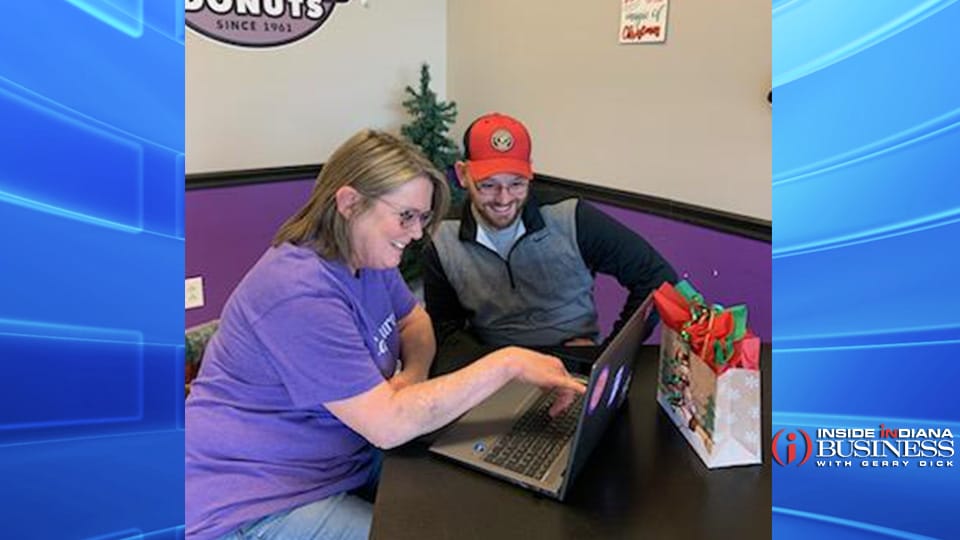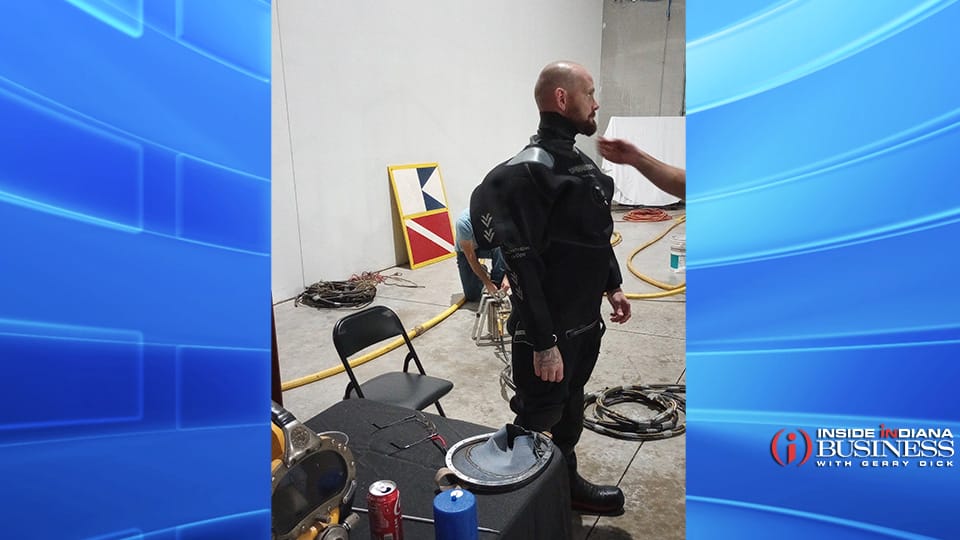CareSource program offers support for people making transition after incarceration
Subscriber Benefit
As a subscriber you can listen to articles at work, in the car, or while you work out. Subscribe Now
About 90 days before a person is to be released from one of Indiana’s 15 state correctional facilities, the offender will consult with representatives from CareSource to prepare for life beyond incarceration.
They’ll be asked to answer questions like “Do you have a place to live,” “Do you need any medication or medical equipment” and “Is transportation an issue?”
After spending two and half years incarcerated for a felony gun possession charge, Joshua Priest was preparing for his release in 2021 and looking over his insurance options. He learned about a program through CareSource where he could receive peer and financial support—assistance that he said changed the trajectory of his life for the better.
“I’m at the point where my life has completely changed,” he said. “All that stuff from before, that’s all behind me, and I’m just moving forward.”
Joshua Priest talks about the difficulties of re-entering society after incarceration.
Now, he is a full-time welding student, works in home health care and will soon be studying advanced underwater welding in another state through Ivy Tech Community College. His photo is even included in an Ivy Tech promotional pamphlet.

Dayton, Ohio-based CareSource’s re-entry program supports formerly incarcerated people with services that address factors contributing to poor health and recidivism. The barrier-reducing program has initial services for all incarcerated people but more a robust, supportive program for its members. When applying for Medicaid, CareSource is a provider option for a managed care plan.
The not-for-profit started the program in 2018 in collaboration with the Indiana Department of Correction and the Family and Social Services Administration. CareSource declined to provide details about its contracts with the state.
Indiana is the only state in which CareSource runs such a program, a spokesperson said, but they hope to replicate it elsewhere eventually.
The program had conducted over 145 pre-release education classes, 500 transition support plans and 700 health care screenings, according to data from 2022. More recent data was not available. The Department of Correction did not immediately answer requests from Inside INdiana Business for information on how much CareSource’s contracts with the state are worth.
“When these individuals get out of incarceration, they have so many other barriers that they’re facing, the last thing they’re worried about is going to the doctor for a checkup,” said Steve Smitherman, CareSource Indiana market president. “We want to make sure that we’re putting all of those things in place.”
The not-for-profit has two arms: one that deals with insurance and another that does outreach to benefit community health outcomes. The program is free and at no additional cost for CareSource members.
“Our mission is to improve the health and overall well-being of our members,” he said. “And if it means that we lose a member because they get a good job, and they now have commercial insurance, that’s the right thing to do.
Smitherman talks about how the re-entry program fits into the not-for-profit’s mission.
Many people can immediately see a health care provider upon release through the program, he said, and receive treatment for mental health and substance abuse disorders. The program can tap into its network of hundreds of community partners to assist a person with things like housing, food insecurity and clothes.
The program can help with things like reinstating suspended driver’s licenses and enrolling in GED programs. They also have a job assistance program where they work with second-chance employers to match people with a starter or higher-paying job. Participants can also receive help getting their records expunged, potentially unlocking more employment opportunities.
“Every time we identify a barrier we haven’t thought about or is not part of the program, we work really hard to incorporate that into the program,” Smitherman said.
For Priest, the program has provided important guidance. With each step, he said, his life coach and CareSource have been there for him in a life-changing way.
Priest was assigned one of the program’s 15 life coaches, Charla McIntosh. She calls him twice a month now but was phoning him about every day at the start. She helped with getting the judge to waive a 90-day suspension of his driver’s license and building a resume. She also helped him pay off some tickets and fix his car.
“I pretty much look at her as a life coach, as a friend, and she’s almost like a second mother—because she’s been there through everything,” Priest said. “She just started telling me everything that she could help with and just went from there.”
Priest talks about the support he’s received and the second mother he found in his life coach.
The life coach is a significant piece of the program. Smitherman said the coaches become a 24/7 lifeline to their clients. They develop a working relationship with their clients and help keep them on their path toward a successful transition.
Smitherman said the program has really shown success in helping people to find a way to buy a car or home, reconnect with their children and participate as a member of their community. He points to Priest and says he will likely be making six figures following his additional education.
The recidivism rate for those participating in the program is about 9%, Smitherman said, which is far below the state average of nearly 30%. Recidivism is typically defined as another incarceration within three years of release.
The program, which was an honoree at the IBJ’s Health Care Heroes event, also keeps track of wellness visits and medication adherence in an effort to prevent them from having to visit an emergency room or have an extended hospital stay.
Smitherman said the not-for-profit wants to expand the program to juvenile detention facilities and is looking to run a pilot program in 2024.
“I would love to see at some point that we’re in every prison and every juvenile facility across the state of Indiana,” he said.
